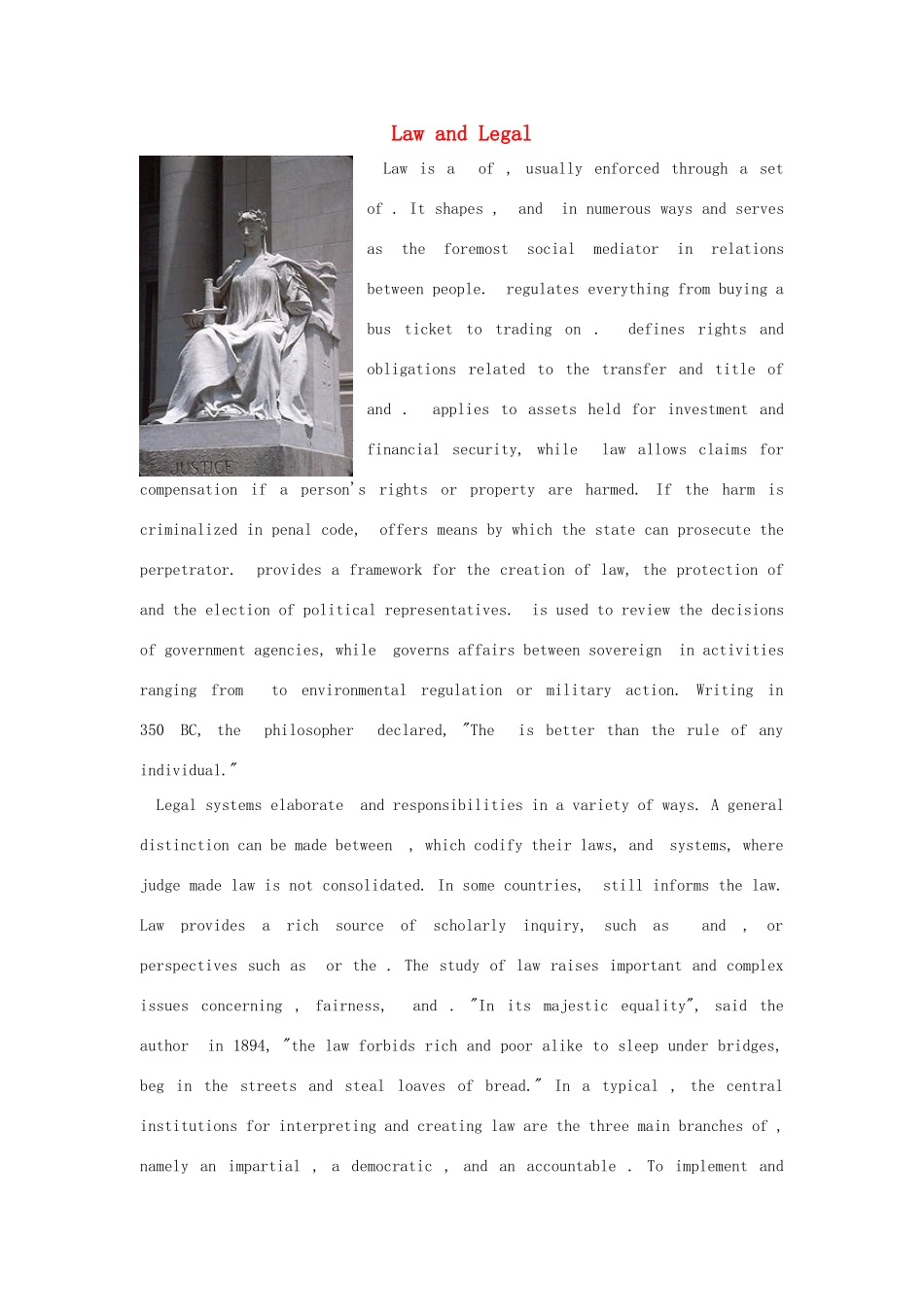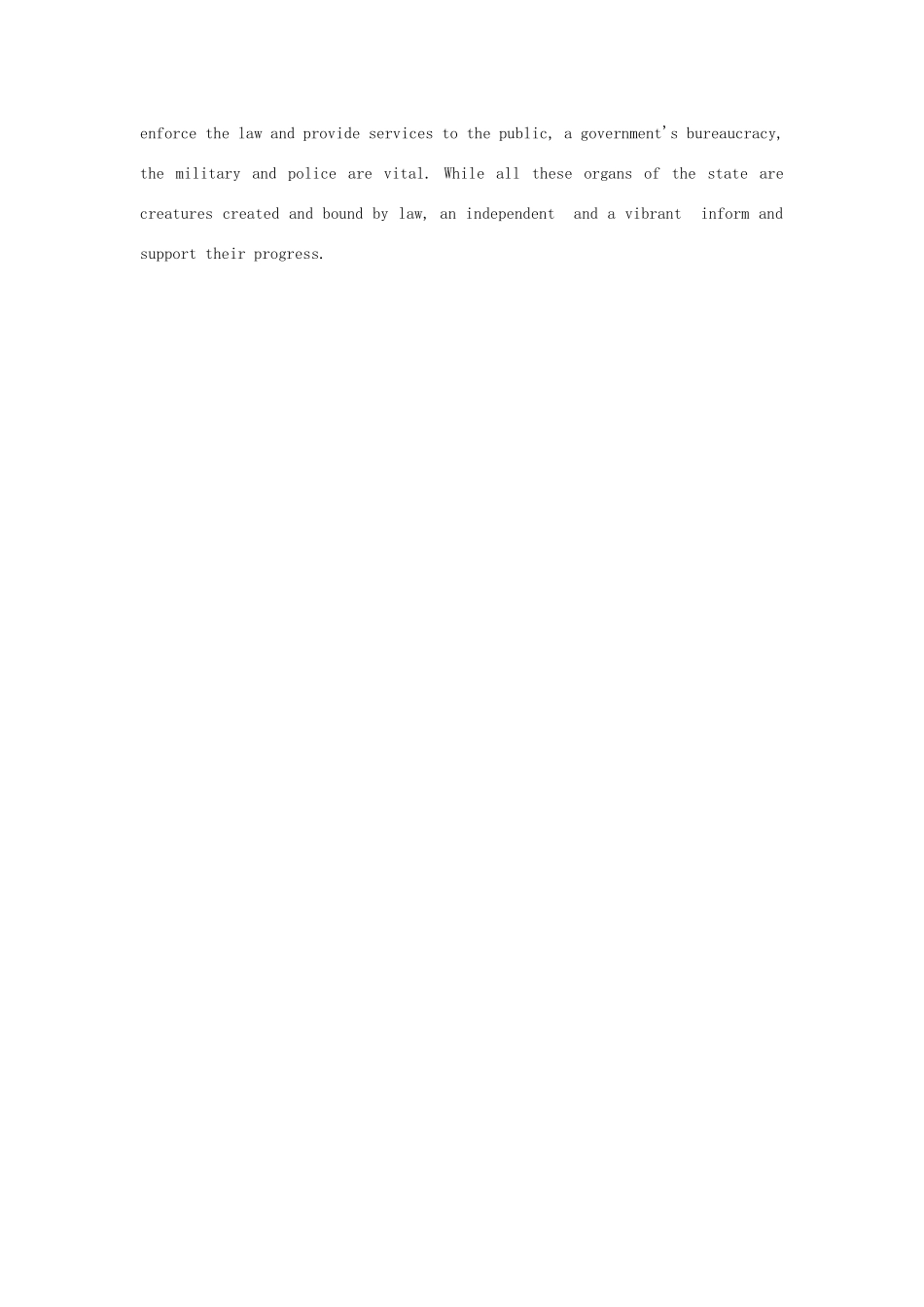Law and LegalLaw is a of , usually enforced through a set of . It shapes , and in numerous ways and serves as the foremost social mediator in relations between people. regulates everything from buying a bus ticket to trading on . defines rights and obligations related to the transfer and title of and . applies to assets held for investment and financial security, while law allows claims for compensation if a person's rights or property are harmed. If the harm is criminalized in penal code, offers means by which the state can prosecute the perpetrator. provides a framework for the creation of law, the protection of and the election of political representatives. is used to review the decisions of government agencies, while governs affairs between sovereign in activities ranging from to environmental regulation or military action. Writing in 350 BC, the philosopher declared, "The is better than the rule of any individual." Legal systems elaborate and responsibilities in a variety of ways. A general distinction can be made between , which codify their laws, and systems, where judge made law is not consolidated. In some countries, still informs the law. Law provides a rich source of scholarly inquiry, such as and , or perspectives such as or the . The study of law raises important and complex issues concerning , fairness, and . "In its majestic equality", said the author in 1894, "the law forbids rich and poor alike to sleep under bridges, beg in the streets and steal loaves of bread." In a typical , the central institutions for interpreting and creating law are the three main branches of , namely an impartial , a democratic , and an accountable . To implement and enforce the law and provide services to the public, a government's bureaucracy, the military and police are vital. While all these organs of the state are creatures created and bound by law, an independent and a vibrant inform and support their progress.

